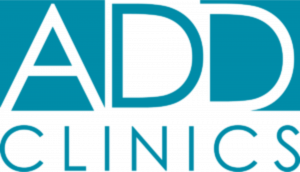
Understanding the Differences Between ADD and ADHD: What Every Person Should Know
Defining ADD and ADHD
ADD and ADHD are both neurodevelopmental disorders that affect a person's ability to focus, control impulses, and manage behavior. However, the key difference lies in the presence of hyperactivity. ADHD is characterized by inattention, impulsivity, and hyperactivity, while ADD is primarily associated with inattention without the hyperactive component.
Dr. Owen explains, "ADHD includes a pattern of hyperactive and impulsive behaviors in addition to difficulties with attention. In contrast, individuals with ADD tend to struggle primarily with maintaining focus and attention, but they do not exhibit the same level of hyperactivity or impulsiveness."
This distinction is critical for understanding how each condition manifests in daily life and how it may impact academic performance, social interactions, and overall well-being. While both ADD and ADHD can lead to challenges in these areas, the strategies for managing them may differ depending on the specific symptoms.
Recognizing the Symptoms of ADD
ADD often goes unnoticed, particularly in children, because the symptoms are less overt than those of ADHD. Children with ADD may appear quiet, reserved, or even daydreamy, but these traits can mask underlying difficulties with attention and focus. They may struggle to complete tasks, follow instructions, or stay organized, but because they are not disruptive, their struggles may be overlooked.
Dr. Owen notes that children with ADD may be labeled as "underachievers" or "lazy" due to their inability to focus and complete tasks. However, these labels do not accurately reflect the challenges they face. Understanding that these behaviors are symptoms of a neurodevelopmental disorder is crucial for providing appropriate support.
In contrast, the hyperactive and impulsive behaviors associated with ADHD are often more noticeable. Children with ADHD may have difficulty sitting still, interrupt others frequently, or act without thinking. These behaviors can lead to more immediate recognition of the disorder, prompting earlier interventions.
The Importance of Early Diagnosis and Intervention
Early diagnosis and intervention are critical for both ADD and ADHD. Left unaddressed, these conditions can lead to academic difficulties, social challenges, and emotional distress. Children with undiagnosed ADD or ADHD may struggle with low self-esteem, frustration, and a sense of failure, which can have long-term effects on their mental health.
Dr. Owen emphasizes the importance of early detection, stating that a comprehensive evaluation by a healthcare professional can help identify the specific nature of a patients attention difficulties. This evaluation typically includes input from parents, teachers, and spouses, as well as standardized assessments and behavioral observations.
Once a diagnosis is made, a tailored treatment plan can be developed. For both ADD and ADHD, a combination of behavioral therapy, support, and, in some cases, medication can be effective in managing symptoms and improving daily functioning.
Understanding the Role of Medication
Medication is often a topic of concern for parents when it comes to treating ADD and ADHD. Stimulant medications, such as methylphenidate and amphetamines, are commonly prescribed for ADHD because they help increase attention and decrease impulsivity and hyperactivity. These medications can also be effective for managing the inattention associated with ADD, even in the absence of hyperactivity.
Dr. Owen explains that medication is not a one-size-fits-all solution and should be carefully considered based on the individual's needs. While medication can be a powerful tool in managing symptoms, it is most effective when used as part of a comprehensive treatment plan that includes behavioral strategies and academic accommodations.
It's important for parents to work closely with healthcare providers to monitor the effects of medication and make adjustments as needed. Regular follow-up appointments are essential to ensure that the treatment plan remains effective and that any side effects are managed appropriately.
Adults with ADD and ADHD
In addition to medical and behavioral interventions in children, adults continue these disabilities into adulthood and eventually to old age. As the person ages, all behavior changes, including the ADHD, which often loses some or all of the hyperactivity. As middle age transpires, hormonal insufficiency has impact, and then all of the illness and medications used to treat those illness transpire. So ADD and ADHD is a moving target from birth to death. Therefore, expert medical advice is necessary from adult physicians as pediatricians bow out of the treatment cycles. Many of the ADHD hyperactive children evolve to obvious bipolar disorder, often hard to diagnose in children. ADHD is considered and classified as under the bipolar “spectrum”, meaning they have much in common.
Moving Forward with Knowledge and Understanding
Understanding the differences between ADD and ADHD is essential for recognizing the unique challenges each condition. Dr. Owen and the team at ADD Clinics in Gulfport, Mississippi, are dedicated to providing comprehensive care and guidance for individuals with ADD and ADHD. Through education, early intervention, and tailored treatment plans, children with attention deficit disorders can lead fulfilling and successful lives.
In conclusion, while ADD and ADHD share some similarities, their differences are significant and require distinct approaches to diagnosis and treatment. By recognizing the unique characteristics of each condition, healthcare providers can ensure that all patients at every age receive the support and resources they need. Understanding these differences is the first step toward effective management and positive outcomes for individuals with ADD and ADHD.
Morgan Thomas
Rhino Digital, LLC
+1 504-875-5036
email us here
Visit us on social media:
Facebook
Distribution channels: Culture, Society & Lifestyle, Healthcare & Pharmaceuticals Industry
Legal Disclaimer:
EIN Presswire provides this news content "as is" without warranty of any kind. We do not accept any responsibility or liability for the accuracy, content, images, videos, licenses, completeness, legality, or reliability of the information contained in this article. If you have any complaints or copyright issues related to this article, kindly contact the author above.
Submit your press release

